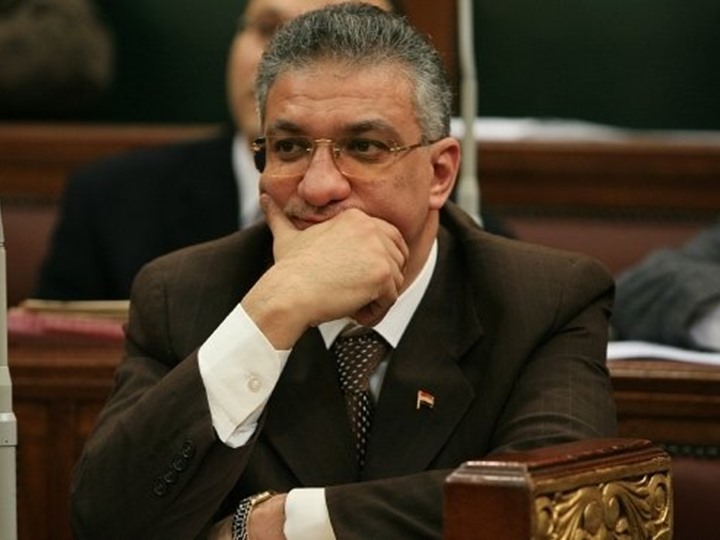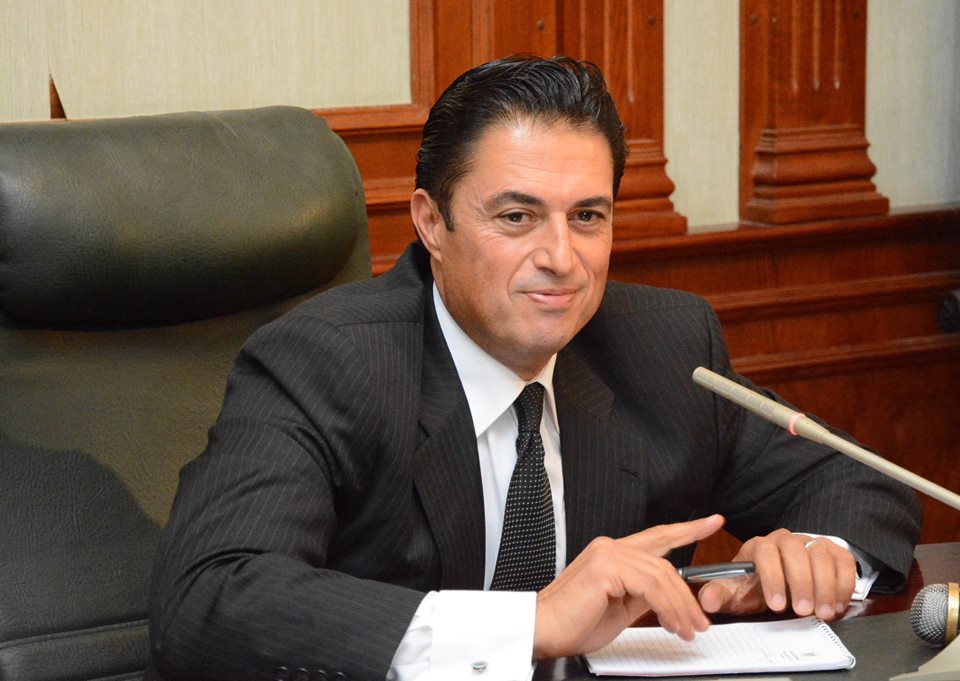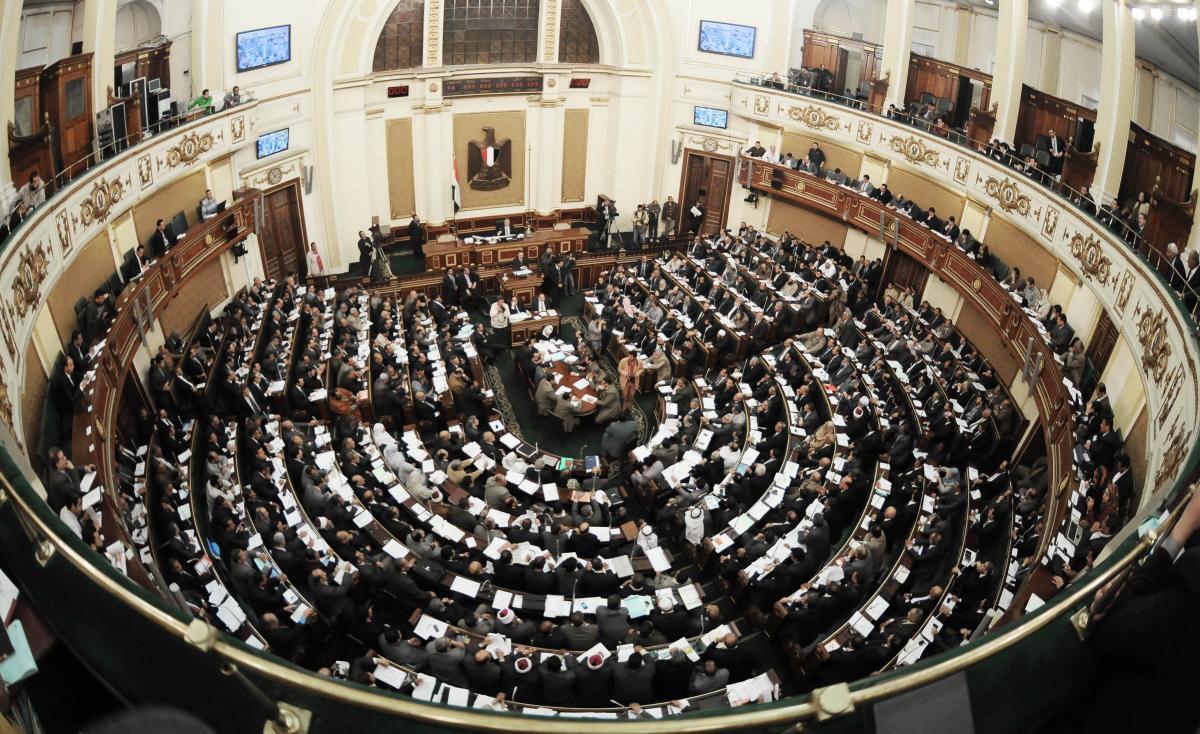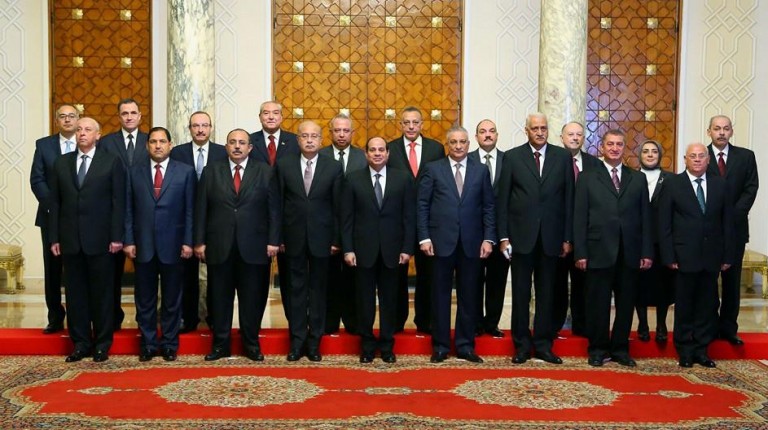In the past 21 months, Egypt has witnessed three governor shuffles, averaging at one every seven months. The most recent change in Egypt’s municipal hierarchy took place on December 26 2015 when 11 governors were sworn in by the president to replace those deemed ‘unfit’ to continue their tenure.
Occupying nine out of the 11 posts, Major Generals from the military establishment have won over the lion’s share of al-Sisi’s governor appointments. Regardless of the reasons leading to the choice of the recently appointed governors, resorting to a majority of military personnel is considered a setback to many advances that occurred during the Ibrahim Mehleb era, when young engineers, professors and experienced managers were appointed as governors.
Furthermore, it is important to note that the 11 replaced governors have been in their posts for a minimum of 10 months and a maximum of two years. This high turnover coupled with the revived historical grip of the military and police establishment on the governor position has called into question the criteria and process upon which governors are selected. An effective selection process would not yield such a high turnover.
Currently, the president, aided by the Minister of Local Development and the Prime Minister along with state and security agencies, has the power to hire and fire governors. However, critics believe that the current decision-making process gives more weight to security reports and considerations, at the expense of merit as a priority.
This past shuffle has left Egyptians guessing as to the reasons why these governors specifically were replaced and others not.
In an attempt to address these public concerns, Minister of Local Development Ahmed Zaki Badr – who also served as Minister of Education in 2010 – has made numerous appearances on various media outlets to try and justify the appointments. He announced that ongoing progress reports were the reason behind the replacement; however, he failed to mention any details from said progress reports.
When asked about the criteria upon which the governors were selected, the minister simply referenced “managerial experience” and “personal traits” as the deciding factors. The selected governors met those criteria “to a large extent,” according to the minster. Badr then defended the dominance of military and police generals amongst the president’s appointments by stating that the civilians who passed the vetting process and met his criteria were approached but did not accept the offered positions.

Where do we go from here?
“Whether we like it or not military and police [personnel] are the ones who work 24 hours with enthusiasm and patience… [they are] the most qualified in handling municipal matters,” proclaimed Badr.
This kind of exceptionalism with regards to military and police personnel comes at the expense of genuine civilian involvement in the Egyptian political sphere. Rather than relying on a closed circle of trusted individuals, the regime must grow out of old practices and open up the space for civilians in a fair competition based on vision and merit for this extremely vital position in the executive hierarchy.
The only legitimate arbitrator in this fair competition for the governor’s seat is the Egyptian people. Direct election would be the most effective long-term guarantor of accountability, transparency and effective use of resources. The system of checks and balances ensured by the electoral process will provide Egyptians with the power to decide their own fate and make their own mistakes.
As foreign and inefficient as governor elections may sound to some people, the approach would not be a ludicrous proposition to put forth. In fact, Article 179 of the Egyptian constitution states that governors, among other posts, are either elected or appointed.
Similarly, a civilian majority occupying governorates’ posts isn’t bizarre either. In 1978, civilians dominated President Anwar El-Sadat’s governors’ shuffle. He even broke the 166-year-long tradition of exclusively appointing military personnel as governors of ٍSuez by appointing the late Ahmed Helmy Badr to that post.
Sadat’s appointments were then believed to pave the way for direct governor elections. However, after Sadat’s assassinations his gains were halted and his plans never materialized. Since then, politicians and academics have been pushing this agenda forward for years, to no avail.

In hopes of considering a different approach to managing the governors’ roles, an ongoing debate between elections versus appointment still drags on today.
Proponents of the tried method of appointing governors believe that increased decentralization and governor elections will lead to an unstable and weak state. However, they offer no clear explanation as to the causal link between elections and instability. In addition, they believe that appointing governors shields the position from tribalism that may arise from electing locally-born governors. They further posit that appointed governors make it easier for the executive branch to carry out its developmental plans, while making it easier to replace governors in case their performance is not up to par.
A combination of tight regulations, an effective system of checks and balances along with judicial and civilian oversight over the governor election process puts a lot of the aforementioned concerns to bed.
The truth of the matter is that the same constitution which guarantees Egyptian unity also allows for governor elections and prioritizes decentralization on the national agenda as per Article 176. Therefore, suggestions that link decentralization to chaos or disunity remain inconsistent.
The governor’s role is so immediate and affects the everyday lives of Egyptian citizens so directly that it makes it harder to win over the electorate on empty promises and slogans. Municipal voters are the most aware of the problems they face on a daily basis – problems which candidates will have to develop specific plans to solve. Governorates manage and oversee local education, hygiene, garbage collection, medical centers, road maintenance and public transport, to name a few. This makes civilian involvement in the selection of governor all the more important.
Local-born governors would thus be closer to the people and more aware of the particularities of the governorate, power balances, public sentiments and chronic problems that affect the governorate’s development. Such acquired knowledge is undoubtedly of grave importance to assist the governors fulfill their duties.
However, current state policy opts for appointing governors from outside the governorates they oversee.
Allowing for municipal elections will also open the door for governorate cooperation and competition. A popular and locally-elected governor can more effectively rally up his community towards prosperity and development. This will increase governorate retention of local skill and ambitious talents, thus disturbing the debilitating effects of migration patterns towards greater Cairo.

The Need for Legislative Reform
After all is said and done, what is abundantly clear is that the governor position – vital as it may be – is only one cog in an administrative machine that doesn’t seem to run well at the moment. Without much needed legislative reform of municipal law, governors – elected or appointed – will always be set up for failure.
Dr. Samir Abdelaal, Professor of Public Governance and Head of the Decentralization unit at Cairo University, attributes municipal corruption to lack of civilian involvement and oversight. In his study, local administration expert Dr. Reda Ragab also highlights the structural ineffectiveness of current mechanisms of civilian oversight through an analysis of local councils.
Dr. Abdelaal along with former Minister of Local Development Mohsen Nomaani, further stress the need for untangling the conflicting powers of the different levels of government. Nomaani further adds that the state must empower decentralized local governance by providing municipalities with fiscal independence.
After more than three years of a parliamentary void, will Egypt’s newly elected parliament rise up to the current moment and be bold enough to legislate for direct governor elections? By doing so, they would demonstrate the will to enact true change by opening up more venues for public service, making it more attractive and promising for aspiring Egyptians.
Not only will governorate elections produce a more mature political process, but it can serve as a platform for all Egyptians to run for local office and prove their mettle. This will foster the ideal of public service that has been long monopolized by the political elite.
The position of governor would then become a stepping-stone for tested and ambitious Egyptians towards holding even other positions in the executive or legislative branches of government. The state needs to come up with fundamentally new ways to tackle persistent issues that have plagued Egypt for years.
Old ways always yield old results.







Comments (0)